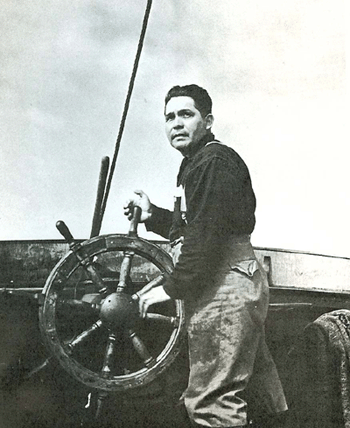Indigenous Values & Entrepreneurship

A DOMINANT PHILOSOPHY OF INDIGENOUS COMMUNITY is to be inclusive, caring and supportive of an extended family and clan group. This is not a fuzzy, socialistic welfare concept. It is a powerful survival technique which evolved from thousands of years of war, famine, territorial rights, enlightenment and power sharing. From the long houses of the Iroquois through the hundreds of nations of Australian Indigenous people it is a fundamental rubric of subsistence society. The strongest groups have the most powerful hunters and food gatherers who share the most effectively.
Rights are unprejudiced and without reservation based on skin, clan and family relation. The strength of an Indigenous community is equal to the strength of its capacity to protect its weakest member. Within the traditional group regardless of ability, aptitude, state of mind, beliefs – you are obliged to live with, share with, participate and support your fellow community members, come what may. To disregard this law is to invite destruction.
Contrast this with non-Indigenous society where beyond one’s obligations to a nuclear family, individuals pick and choose who they live alongside, work with, support and are obligated to. Obviously each form of society has its advantages and disadvantages. But in the modern world frequently one’s only obligation is to be true to one’s self. There are dozens of young people’s movies from the 1960s classic Easy Rider to the sort of hip hop Boyz in the Hood genre that stress this theme. Normally the transition to adulthood is a source of tension within any household, but there is a double bond to break for Indigenous young people if they are to make their way in the world. They must make the transition to adulthood as well as come into conflict with the tensions of traditional obligations and the contradictions of a Western society which emphasises individual success. Furthermore to succeed in modern Western market based capitalist society some dimension of freedom from traditional obligations is needed - particularly with regard to work, enterprise and even things like mobility. This is a constant sticking point for Aboriginal entrepreneurship and it is a major issue for Aboriginal young people making their way in the world. Just like the young heroine of New Zealand’s Whale Rider, an interpretation of traditional cultural values can frequently lead to obstacles and misunderstandings, resolution requires enlightened shifts of traditional values as well as an adaption, not a submission to, modern Western capitalist values.
The motif of the Indigenous Stock Exchange (BAMA ISX) (see addendum) is Tabitha Kerr’s swirling picture and its story is about young Kuku Yalanji women wearing modern clothes but having respect for traditional values. It’s a difficult swirling road, and just like the picture there is a constant circle of things to consider.(See p.5)
3000 words


